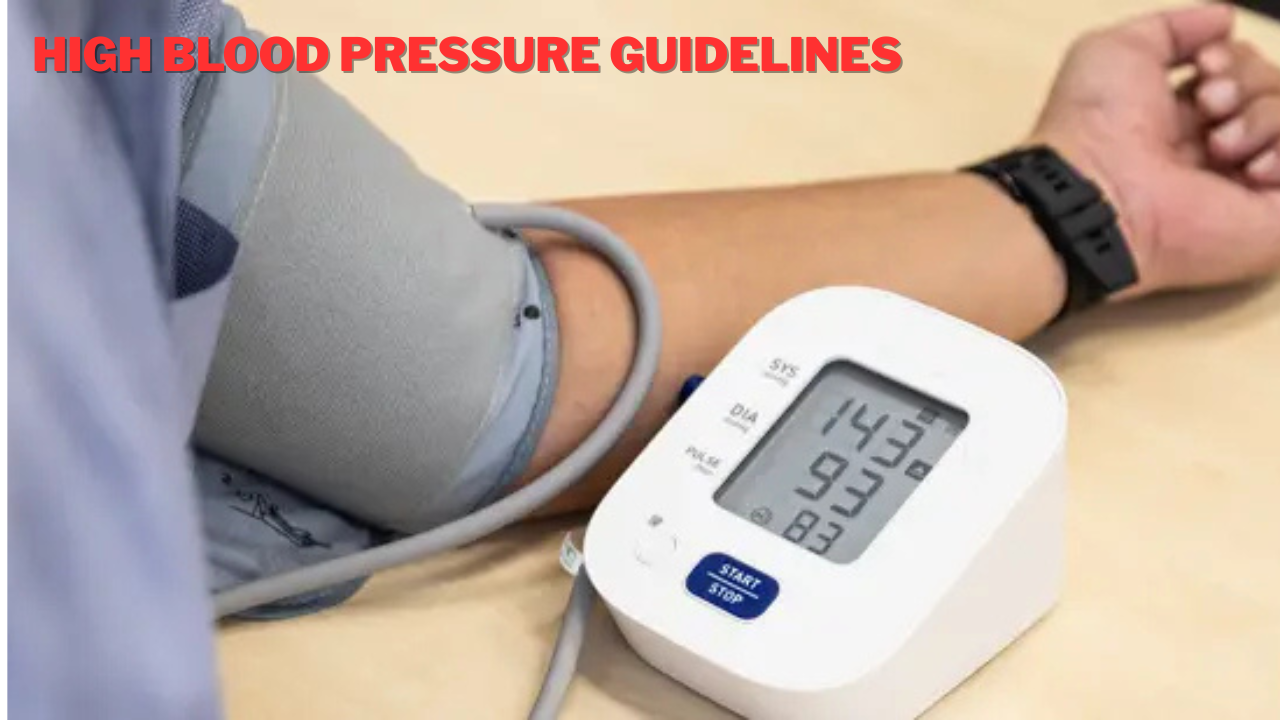New Delhi: The American Heart Association (AHA) has released revised guidelines for the management of high blood pressure, recognizing it as the most prevalent and modifiable risk factor for premature death from heart disease, stroke, dementia, and kidney disease. For the first time, the focus is on early intervention, lifestyle management, and timely use of medication to prevent long-term complications.

Dr. Balbir Singh, Chairman of Cardiac Sciences at Max Healthcare, explained, “These guidelines are stricter from the very beginning. They emphasize prevention through diet and lifestyle, screening for every possible trigger, and introducing medicines early if lifestyle changes don’t work. For Indians, who are genetically predisposed to heart problems at younger ages, this update carries strong preventive takeaways.”
New Blood Pressure Parameters
- Normal BP: Now classified as 115–119 systolic / 70–79 diastolic mmHg, lower than the earlier 120/80 mmHg benchmark.
- Elevated BP: 120–129 systolic and <80 diastolic mmHg.
- Stage 1 Hypertension: 130–139 systolic or 80–89 diastolic mmHg.
- Stage 2 Hypertension: ≥140 systolic or ≥90 diastolic mmHg.
- The revision strongly links blood pressure control with brain health, pregnancy outcomes, and long-term cardiovascular protection.
When to Start Medication?
- A systolic reading of 130–139 mmHg should first be managed with lifestyle changes.
- If BP doesn’t reduce, or the diastolic crosses 80–90 mmHg, a single drug is prescribed.
- Patients with 140/90 mmHg or above should start with two drugs immediately for better control.
- The dual therapy approach is aimed at preventing crises in patients with weak heart function.
Tests Now Recommended
The AHA stresses comprehensive screening beyond the usual BP checks:
- Liver Function Test (LFT) and Kidney Function Test (KFT).
- Electrolyte balance tests (sodium and potassium).
- Blood sugar and uric acid profile.
- Urine albumin-to-creatinine ratio test – for kidney health.
- Aldosterone-to-renin ratio test – to detect hormone-driven hypertension.
These advanced tests are mandatory for those with stage 2 hypertension, diabetes, pregnancy complications, or kidney issues.
Preventive Lifestyle Recommendations
The guidelines reinforce well-known but essential preventive steps:
- Limit sodium intake to under 2,300 mg/day, ideally 1,500 mg/day.
- Quit smoking and limit alcohol (2 drinks/day for men, 1 for women).
- Manage stress through yoga, meditation, or breathing exercises.
- Lose at least 5% body weight for better BP control.
- Exercise 75–150 minutes weekly, including cardio and resistance training.
- Follow the DASH diet: fruits, vegetables, whole grains, legumes, lean meats, and nuts.
- Regular BP monitoring at home for early detection and control.
The AHA also highlighted the role of potassium intake in controlling hypertension, suggesting potassium-based salt substitutes where suitable, except for patients with kidney disease.
With stricter thresholds and emphasis on early prevention, these updated guidelines aim to reduce the global burden of hypertension-related deaths and disabilities.
